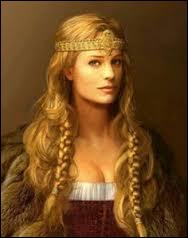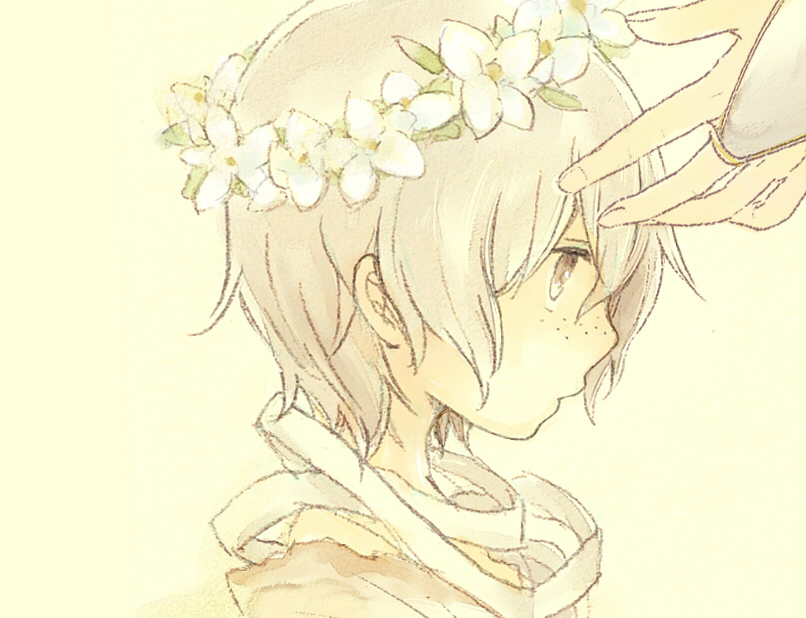The Daggers of Monaxer

"I write this to you with all of my heart. Our kingdom has fallen. I care not for ivory towers or mounds of gold. The life force of a King is emboldened by his children. I think about each of you as I write this, yet memories of better times are like phantoms at this grim hour. You must be strong now. My eyes will not witness your grandest achievements. My hands will not comfort your pain or chastise your foolishness. My voice will not sing the tales of our Ardin name. Survive, my little daggers. Be strong. Remember us not as King or Queen, but as father and mother. We await you on the otherside, where Uleth will carry you upon Silver Winds to the Golden Clouds."
The Realm

The past is full of crowned heads. If they didn't bow to their conquerors, they bowed to the sword that detached them from body. The Five Territories of the mainland are the result of centuries old squabblin'. The invasion of Wulfgarn continues the juggling act of beheaded royalty.
Monaxer, the heel of the mainland, but never treated as such. The royal blood of Ardin brought forth respectable kings. They may have not been the most cunning, but their honor and pride in service to the people was well-received by Monaxerians. The land is rich and fertile, lush with fauna and ripe for bountiful harvest. Huntsmen come for the wide range of game. Artisans seek inspiration from its beautiful landscapes. Merchants come and go, bloating their inventories with Monaxer-quality goods. Best known for their Starflower Festival, a harvest celebration in autumn full of games, dancing, and merriment. They and Loten are the only two kingdoms that have formed a pact with all the territories of the mainland. It is currently occupied by Wulfgarn forces. King Tir Ardin died at the battle of Moondean. Queen Lilas Ardin is currently imprisoned.
The coastal kingdom of Nelga is a broken realm. Their resources are sapped dry from previous conflicts between Gildfaas and Loten, relying on fisheries for commerce. King Sed Poliaf sits upon one of the most elegantly monumental castles of the land, a pearl amidst a dying reef vandalized by miscreants. A band of pirates and marauders called the Guild of Skulls have established their base of operations in Nelga. Nelga currently holds an alliance with Loten, and have severed ties with all Monaxerians due to the Wulfgarn occupation. They have a truce between Gildfaas and Okaria.
Loten is a kingdom of mysticism. Its mountainous landscapes are riddled with cities and temples. There is more speculation than fact known about Loten and its people. Very rarely do they part from their homes carved along the mountainsides. It is a hub for masters of hand-to-hand combat and magic. Waywarden Ukan is considered more as a priest than a king, but is obeyed by all Loteners.
The bulk of the central inlands are controlled by the Gildfaas kingdom. Though King Edef rules with an iron fist, rumors suggest that Queen Demaria pulls the strings. They hold the largest army in the realm and are likened to a militaristic culture. Gildfaasans are known to be pompous and condescending, a superiority complex no doubt enforced from the doctrines of their rulers. Gildafaas is known for their Grand Arenas. Gladiators are pitted against all sorts of beasts on a giant, rotating platform full of obstacle courses and death traps.
The northeastern principalities of Okaria are chopped to bits. The royal line of Butrais fell apart amidst a coup between nobles over a decade ago. The nobles have since formed a coalition, the first showing of a non-monarchy run government. Okaria is known for their big port town cities, writhe with sinful delights and unimaginable vices. This is home to The League of Tovarn, the most prestigious mage university in the land. Okaria's navy is unrivaled, and with Gildfaas as their primary ally, they are the strongest force of opposition to Wulfgarn.
Wulfgarn and Tsat are zealot warrior societies built upon the paganistic cult of Vezemkaur, an old warlord that dabbled in dark magic. Little is known about them. Only folk tales spun by pirates that dared to sail their waters and lived to tell about it.

"Uleth's arrows, guide you to thy Golden Hunt."
The Ardin royal blood line has held its reign over Monaxer for four generations. The first king, Yit Ardin, was a brutal warlord from the north. It is unclear how he came to power. History from the previous Monaxerian rulers are not well documented. Yit would become ill in his fifties, forcing Queen Zetra to rule in his stead. This period would mark a turning point in Monaxer history as the Lady brought forth the first steps in progress for diplomacy, agriculture, and commerce with other kingdoms in the realm. When their eldest son Vetrusis turned sixteen, he was crowned as King of Monaxer. Zetra placed level-headed advisers at his side to ensure success. By this time Yit had decayed into a shell of his former self. In an act of mercy, the youngest boy, Nasef, ended his father's life. Vetrusis never looked at his younger brother the same again. As years went by he grew more paranoid of conspirators. He believed Nasef wanted the throne, so he banished him from the royal castle. At the same time, Gildfaas began their campaign for expansion by invading the southern territories.
King Vetrusis rallied Monaxer with Loten and Nelga in what would be called the Spear Against Gildfaas. Battles raged on for three years. During this time, King Vetrusis reunited with his brother Nasef, who joined the fight as one of his war generals. Nasef would die a legend in battle for holding off Gildfaas armies at Cangeng pass. He was slain by Gildfaas King Ortenklaut himself. Loten and Nelga calvary arrived to turn the tide of war. Divine intervention struck soon after, casting storms that ravaged the inlands of Gildfaas. They eventually retreated, halting their campaign entirely by issuing a truce. To solidify the bonds formed from the Spear Against Gildfaas, King Vetrusis married off his daughter Luci to Waywarden Ukan of Loten, while his son Prince Dareth, courted the princess of Nelga, Wyelisa Poliaf.
Luci grew to love the kindhearted Waywarden, and together they had many children. Dareth would become King and Wyelisa, his Queen. Their grandmother Lady Zetra passed after their wedding. King Dareth was fond of Lady Zetra, inspired by her forward thinking contributions during her short tenure. He sought to continue Monaxer down the same path of prosperity, uniting the people in a joint effort to strengthen the kingdom - on all fronts. All seemed to be going well until Nelga called for aid. Tensions with King Edef had boiled over, and before anyone knew it, the Gildfaas were marching south again. King Sed Poliaf had locked the gates to his golden castle city, leaving the common folk to fend for themselves. Thousands of Nelgans were massacred. King Sed witnessed it all from his golden perch, waiting for King Dareth's army to rescue him.
Word of the massacre spread throughout the realm as the Plague of Poliaf. Wayward Ukan and his beloved Luci were disgusted by Sed's actions, severing their ties from the Spear, isolating Loten from further conflict. This put King Dareth and Monaxer in a complicated situation. While Dareth despised Sed, his wife, Queen Wyelisa, begged him to aid her brother. And should Nelga fall, it would only be a matter of time before Monaxer is crushed by the weight of Gildfaas. It was here where Dareth's father, former king of Monaxer, Vetrusis, stepped forth and issued the Rite of Duels. This was a clause under the terms of truce when Gildfaas retreated back to its lands. In it states that should either kingdom engage in war, a one-on-one contest to the death between two rivaling royal blood lines can be issued in its place. This was the Rite of Duels.
Vetrusis demanded that he fight Ortenklaut, the former King of Gildfaas, who slayed his brother Nasef. Ortenklaut agreed without hesitation. They fought at Cangeng pass on top of the large wall of the keep. Though old and weary, Vetrusis avenged his brother gallantly. He ripped open Ortenklaut's insides with a horizontal slash of his ornate sword. The move itself would later be called War Killer, a technique that would pass on to future sword schools in Monaxer. History soon repeated itself as the results from the Rite of Duels had Gildfaas retreating back to their lands.
Years passed and prosperity in Monaxer thrived. The crown fell onto the head of King Tir, Dareth and Wyelisa's only child. Tir was beloved by the people. He was born in the mud as they say, working in the fields as farmers do and catching the great Merkshels like the fishermen. For an only son to be next in line as king, such exposure to the world always put Tir at risk. The young lad however was never alone. Tir was accompanied by Monaxer's finest servants. They swore an oath to protect him, and would soon become lifelong friends. They went on many adventures throughout the realm. The one which brought them to Okaria is where Tir would meet his future Queen Lilas, a seamstress with a magical voice that loved to hunt and dance. Their union would create four beautiful children, and for more than a decade, the Royal Blood of Ardin calmed their war songs and sang the sweet melodies of peace.
Culture:
Hard work and humility summarize what Ardin Royalty is all about. Monaxerians are proud of their land and the history behind it. They've adopted many Okarian tendencies of art and music (no doubt influenced by Queen Lilas herself). There are conservative minds that view such things as distractions, preferring to romanticize the thrill of hunting, fishing, and farming as their form of expression. All of these things are usually blended together during the Starflower Festival, a time of celebrating harvest in autumn. This includes horse racing, javelin throwing, and archery competitions, all of which are taken rather seriously. People from all across the land come to join in on the festivities. Such access to other cultures has made Monexerians more open-minded, further nuanced by Ardin betrothals with Nelga and Loten royalty.
Religion:
Ulethism. What started out as an old folk tale has evolved into a spiritual theology best described as monotheistic animism. Uleth is considered the grand deity of earth, a spiritual being manifesting itself onto the tools of Monexerian trade, granting its user the power to unlock their true potential in hopes of achieving a desirable outcome - not just for oneself, but for the community. It was said that Uleth was with the first King Yit Ardin, who traveled to these lands and saw the great potential it had. Uleth flowed through Nasef's armor, protecting him for as long as it could while he defended Monaxer's borders. The sustenance Vetrusis ate before the Rite of Duels was no doubt the essence of Uleth's blessing.
"Uleth, guide my hook to bait today's catch. Watch as I provide for my people."
"Uleth's strength, flow through the grass my cattle feasts upon. Endure the coming storms so that I can provide for my people."
These prayer examples show that there isn't a complete reliance on their spiritual god to do things for them, rather, they want to be given the opportunity to prove their worthiness. This belief in turn drives Monaxerians to strive for greatness. Should their prayers fall unanswered, the Ulethian thing to do is proactively correct the error until the desired outcome is achieved.
1x Like







